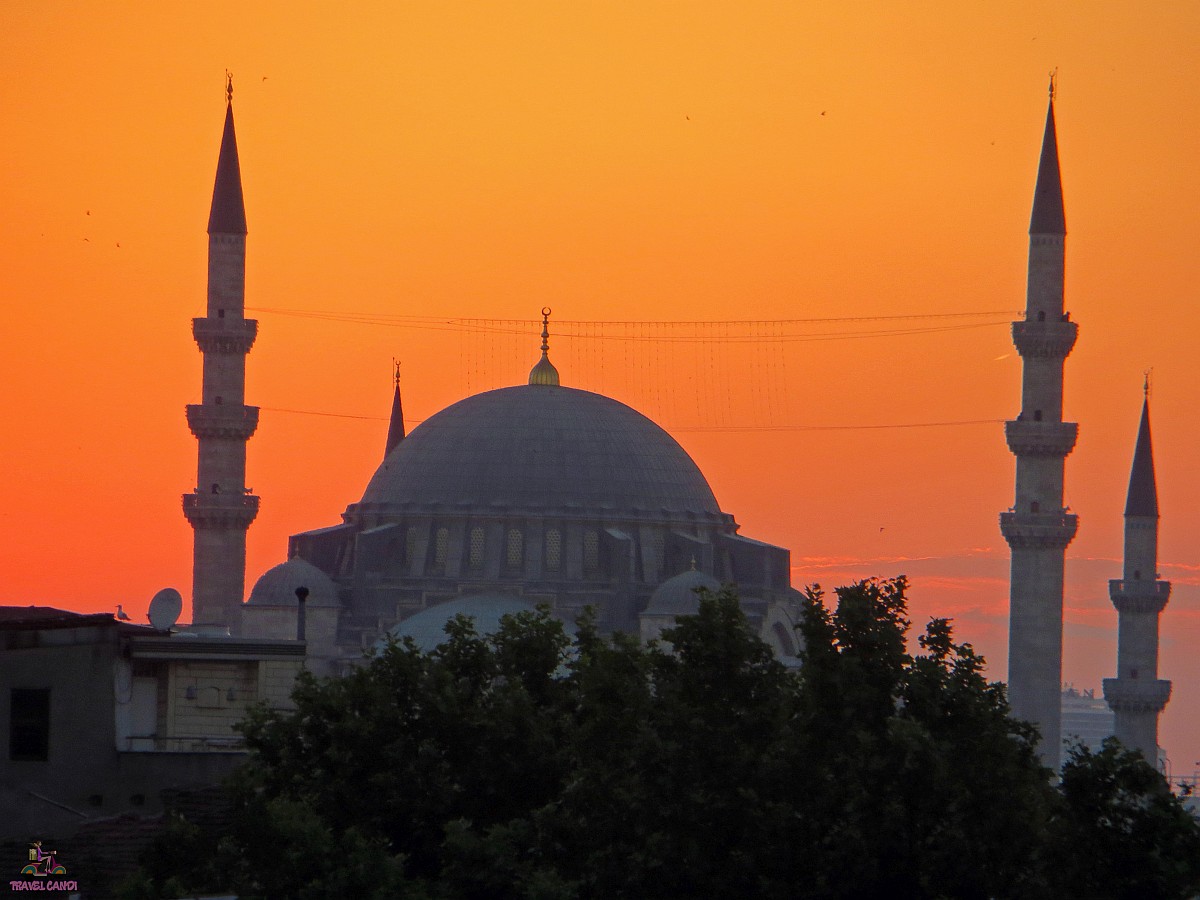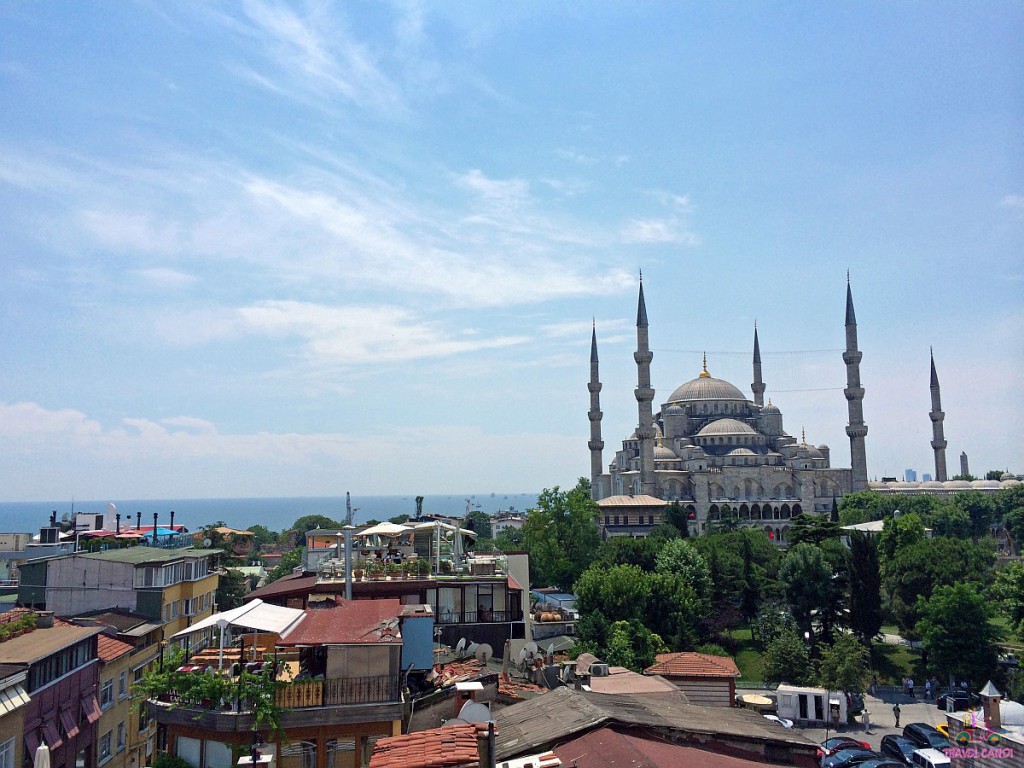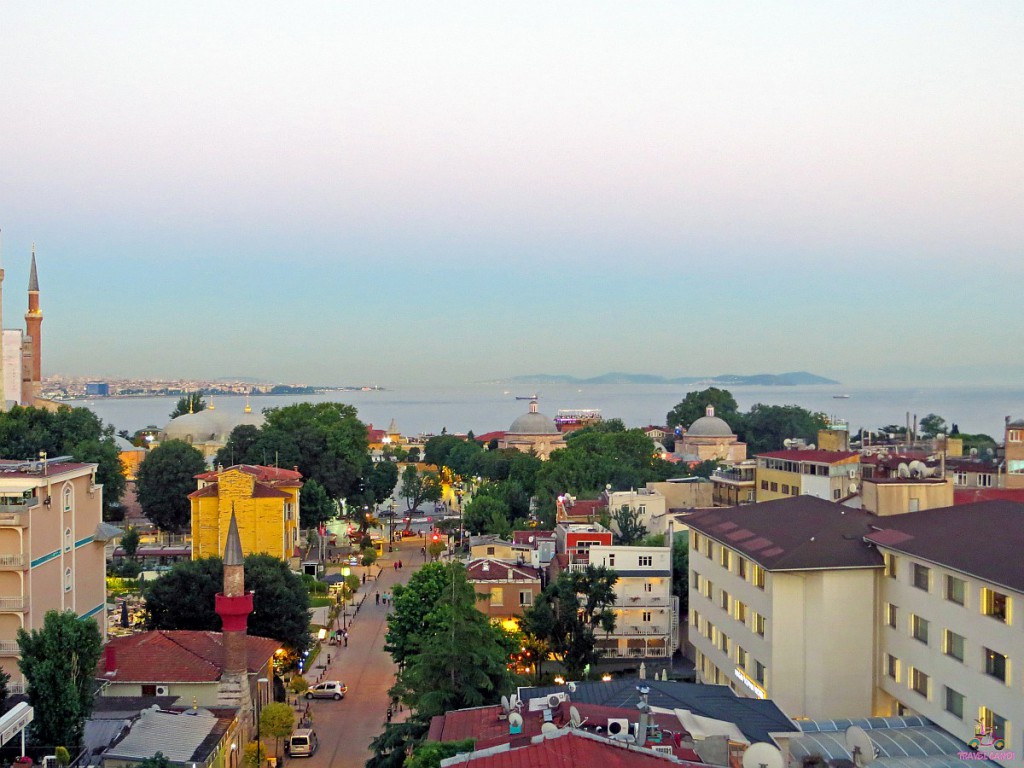
[ezcol_1half]
[/ezcol_1half][ezcol_1half_end]
[/ezcol_1half_end]
Officially the Republic of Turkey (Turkey in short), this country is famous for connecting the western world with the eastern world. One portion of this country qualifies as continental Europe, while the other section qualifies as continental Asia. Turkey is a fascinating country with more Greek ruins than Greece, a dramatic coastline, and food with distinct flavors. Tourism is booming in Turkey!
Getting There And Around
Many travelers going to Turkey, including those from the United States, United Kingdom and various other European countries, need a visa to travel here. Visas are most easily obtained via the Turkish e-visa system.
The most popular way for passengers to arrive to Turkey is via air, landing at one of it multiple international airports. International train travel to and from Turkey is long, complicated, and may require transit visas, so I wouldn’t recommend choosing this option. Rides on the train from neighboring European countries require many changes, and can take up to 40 hours.
If booked in advance, flights within Turkey can be as little as 90 TRY and are a much quicker, more comfortable way to get around locally. Turkish Airlines is the national carrier for this country.
Money
The official currency of Turkey (and Northen Cyprus) is the lira (TRY), but it is familiar to see exchanges being made in U.S. dollars and euros. Coins in Turkey come in the denominations of one, five, ten, 20 and 50 kurus and one lira. Colorful banknotes are in the denominations five, 10, 20, 50, 100 and 200 TRY.
ATMs are found everywhere in Turkey, especially Istanbul, but they come with hefty fees. It is easy to exchange currency at the airports or at many exchange shops available in the larger cities. Most hotels, malls, restaurants, bars, supermarkets, and shops accept credit cards.
Tipping is customary in Turkey. Leaving a 10-15% tip is normal at restaurants. Regarding tips for taxi drivers, just round up to the nearest amount (if you get a metered taxi). All other forms of tipping in Turkey are optional.
Language
The official language in Turkey is Turkish. In popular tourist areas, some Turkish people are able to speak Russian or English.
Hello – Merhaba
Thank You – Teşekkür Ederim (I was taught by a friendly local to think of “tea, sugar, and a dream” to remember this valuable phrase)
Housing
From Mediterranean resorts to inner-city budget hostels, Turkey has every type of accommodation available to meet the needs of travelers. A bed in a dorm room begins at 20 TRY per night, depending on the location of the lodging and season. A more luxurious double room starts at around 150 TRY. Off-season tends to be April, May and October. During the winter months, some resort coastal towns are shut down, except for during Christmas time. Prices in Istanbul are more expensive than elsewhere in Turkey.

Food
Turkish food is comprised of a few ingredients and fresh produce, creating simple combinations. The cuisine is a fusion all of its own, so unique here that many influences of Turkish food appear in the food of surrounding countries. Olives remain an essential part in Turkish cooking, especially in the western part of the country where they are grown in abundance, and many dishes are cooked using olive oil. I couldn’t get enough Turkish pizza (flatbread with a delicious flavored spicy lamb or beef mince inside) or kofta (Turkish meatloaf). Also, try the many different types of kebabs, gozleme (hand-rolled flatbread filled with various ingredients), and dolma (a stuffed vegetable dish).
Drinking tea and coffee is embedded in the culture of Turkey, and both are very strong. Coffee and tea are served in small glasses to ensure the beverage is consumed while still hot.
Save Cash
Traveling to Turkey during its off season will save you the most cash upfront, but you may also have to sacrifice some activities (for example, the balloons in Cappadocia are not in service during the slow season). The most moderate weather in Turkey occurs during the shoulder season, between peak and off seasons.
While moving around the country internally, the cheapest (and most comfortable) option is a bus. Buses are air-conditioned and often luxurious, and on a long journey, free snacks are offered every few hours.
To save money, hit the free attractions Turkey offers. Hagia Sophia has a hefty entrance fee, but Blue Mosque directly across from it is free.

Stay Fit
If you are in the Antalya area, hiking the 540m Lycian Way is an excellent activity to keep in shape and to also take in the scenery of the gorgeous ancient Lycian ruins and landscape.
The tap water is not safe to drink in Turkey. Make sure to purchase plenty of bottled water and stay hydrated in the intense Turkish sun.
Stay Connected
Wi-Fi is available in hotels, cafes, bars, restaurants and cybercafés; it’s virtually everywhere in Turkey. Any mobile phone capable of working on the Global System for Mobile Communications (GSM) will work seamlessly in Turkey, but international rates will apply. SIM cards are also available for purchase from local carriers and use on an unlocked phone, and they can be reloaded at any shop that offers the services of the carrier whose card you purchased.
The electrical power used in Turkey is the European type-C, two-prong 230V outlets.
In Your Bag
As cosmopolitan as Turkey may seem, Turkish squat toilets abound. It is smart to keep toilet paper, sanitary wipes, hand sanitizer and small change available (some toilets charge for use). Using the squat toilet may be weird at first, but soon enough you will soon grow accustomed to the awkwardness of using one.
Especially during the hot summer months, you should keep bottles of water handy to avoid dehydration.


